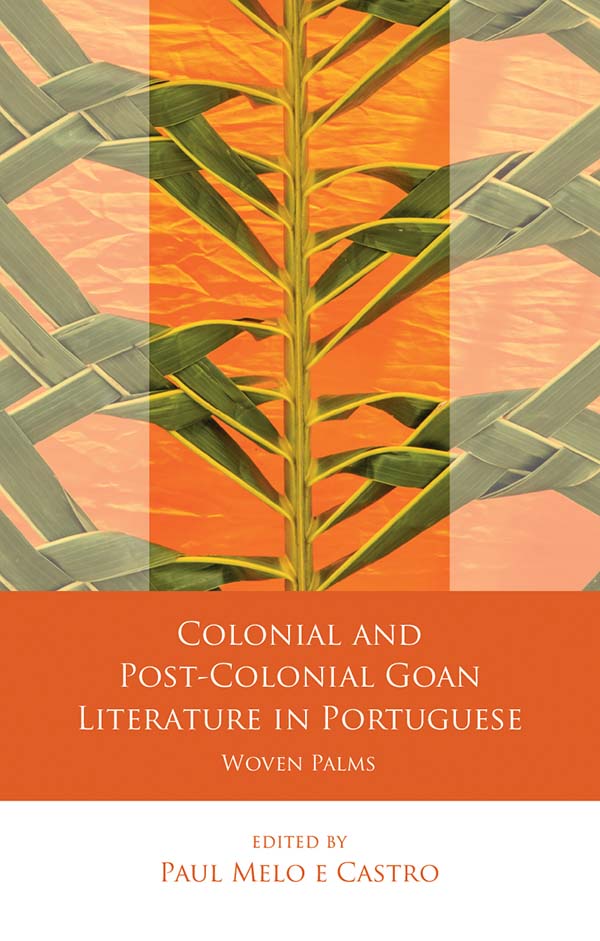Colonial and Post-Colonial Goan Literature in Portuguese
Woven Palms
Editor(s) Paul Michael Melo e Castro
Language: English
Genre(s): Literary Criticism
Series: Iberian and Latin American Studies
- February 2019 · 288 pages ·216x138mm
- · Paperback - 9781786833907
- · eBook - pdf - 9781786833914
- · eBook - epub - 9781786833921
This collection of essays brings together established scholars of Lusophone Goan literature from India, Brazil, Portugal and Great Britain. For the first time in English, this volume traces the key narrative works, authors and themes of this small but significant territory. Goa, a Portuguese colony between 1510 and 1961, was the site of a particular and particularly intense meeting of West and East. The problematic yet productive encounter between Europe and India that has characterised Goa’s history is a major theme in its literature, which affords important insights and material for post-colonial thought. Goan literature in Portuguese is the only significant Indian literature to have been written in a European language other than English and, as such, provides both a challenging point of comparison with anglophone Indian literature and a space to examine post-colonial theory often implicitly embedded in a British Indian colonial experience.
Series Editors’ Foreword
Notes on Contributors
Introduction: The Cartography of Goan Literature in Portuguese: One Language in a Multilingual Social Landscape - Paul Melo e Castro
The Story of Goan Literature in Portuguese: A Question of Terminology - Hélder Garmes and Paul Melo e Castro
Against British Rule and Indian Castes: The First Portuguese language Goan Novel, Os Brahmanes (1866) by Francisco Luís Gomes - Everton V. Machado
The Lives and Times of GIP and Francisco João da Costa - Sandra Ataíde Lobo
Echoes of Portuguese India in Goan Poets, 1893–1973 - K. David Jackson
In the Land of ‘Advogadomania’: The Representation of the Goan Provisionário in José da Silva Coelho’s Contos Regionais - Luís Pedroso de Lima Cabral de Oliveira
‘The Voice of Two Worlds’: Lusotropicalism in the Context and Reception of Vimala Devi’s Súria - Duarte Drumond Braga
Women without Men in Vimala Devi’s Monção - Cielo Giselda Festino
Women’s Worlds in Women’s Words: Poetry and Memory in Vimala Devi and Eunice De Souza - Joana Passos
Science over Superstition? The Representation of the Social World of the Novas Conquistas in Bodki (1962) by Agostinho Fernandes - Eufemiano Miranda and Paul Melo e Castro
Sem Flores Nem Coroas: Reflections on the Play by Orlando Da Costa - M. Filomena de Brito Gomes Rodrigues
The Dregs Populating the Village of Santana: Rural Goa in Three Stories by Epitácio Pais - Paul Melo e Castro
Writing from within the Father’s House and beyond: Goan Women Writing in Different Historical Spaces - Edith Noronha Melo Furtado
Notes
Index
Author(s): Paul Michael Melo e Castro
Paul Melo e Castro is a lecturer in Portuguese and Comparative Literature at the University of Glasgow, where he teaches on both programmes and researches on subjects across literature, film and photography.

